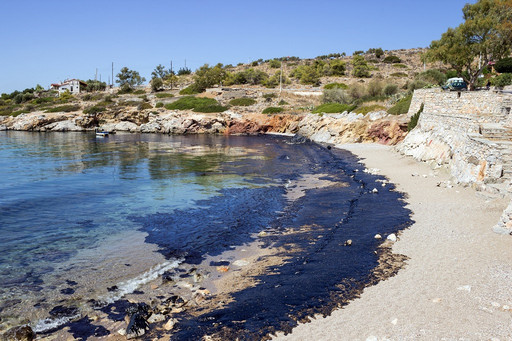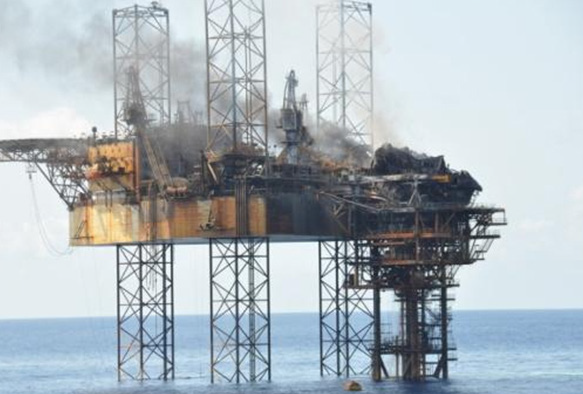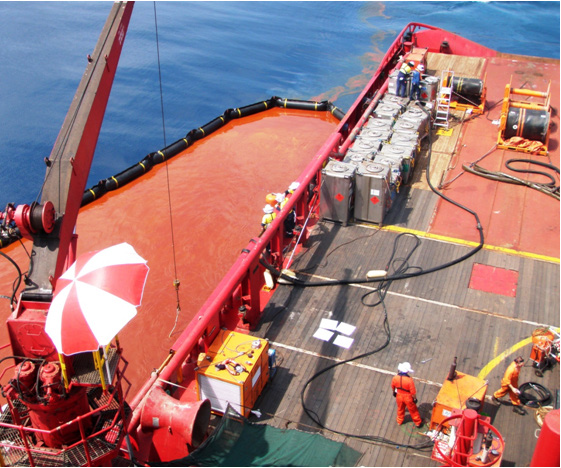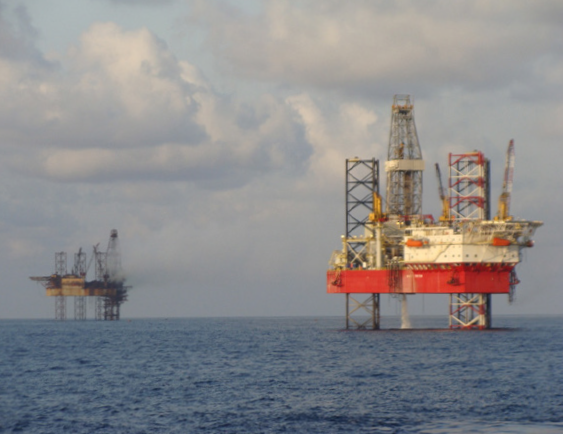Problems
Montara oil spill
On 21 August 2009, a well on the Montara platform on the Australian continental shelf blew out and spilled oil into the Timor Sea for 74 days. The oil, estimated at as much as 23.5 million L in total volume, spread over a large shelf area and eventually into Indonesian waters. The spill was caused by the negligence of PTTEP Australasia, a Thai state-owned oil company PTTEP subsidiary that failed to install a safety valve on the well. The spill was one of Australia’s worst environmental disasters, affecting marine life, coastal communities, and international relations.
Environmental, social and economic impact of the spill
The environmental impact of the spill was extensive and long-lasting. The oil slick covered an area of up to 6,000 km2 (2,300 sq mi) at its peak, threatening endangered species such as sea turtles, dugongs, whales, dolphins, and seabirds. The oil also contained toxic chemicals such as benzene, toluene, ethylbenzene, and xylene, which can cause cancer and other health problems. The spill also damaged the region's coral reefs, seagrass beds, mangroves, and fish stocks. A study by Australian scientists found that the spill reduced the abundance and diversity of fish by up to 50% in some areas. The spill also affected the food web and the ecosystem services provided by the marine environment. Indonesian fishermen have claimed that the spill and response polluted their national waters, killed thousands of fish, and caused skin diseases and loss of human life. NGOs in Indonesia expressed concern about the oil spill's effects on the Indonesian environment and traditional fishing grounds as the oil spill drifted towards the islands of Timor and Sumba. The Montara oil field is south of Indonesia's Pasir Island, a popular fishing location for many East Nusa Tenggara fishermen. The social and economic impact of the spill was felt most acutely by the coastal communities in Indonesia, especially the seaweed farmers who depended on the sea for their livelihoods. The oil killed or contaminated their seaweed crops, causing them to lose their income and food security. Many farmers also reported health problems such as skin rashes, respiratory infections, eye irritation, and headaches from exposure to the oil. Some farmers also suffered from psychological distress and trauma from losing their source of income and identity. The spill also affected other sectors, such as tourism, fishing, and pearl farming in Indonesia and Australia. Since the explosion of the Montara oil rig, the Australian government has continued to pursue compensation for the Thai oil and gas company but has remained at a stalemate. The legal and political impact of the spill was complex and controversial. The Australian government fined PTTEP Australasia $510,000 for breaching the Offshore Petroleum and Greenhouse Gas Storage Act 20063. However, many critics argued that this penalty was too lenient and did not reflect the magnitude of the damage caused by the spill. PTTEP Australasia also faced several lawsuits from Indonesian seaweed farmers who sought compensation for their losses. However, these lawsuits faced many challenges, including jurisdictional issues, evidentiary hurdles, and procedural delays. The spill also strained the diplomatic relations between Australia and Indonesia, as Indonesia accused Australia of failing to prevent and respond to the spill adequately and transparently. The oil company's official website cited independent research that no oil from the Montara Anjungan entered the Indonesian and Australian mainland. It further claimed that the oil spill has had little or no impact on the ecosystem. Or marine species in the waters of the Timor Sea. The spill highlighted the need for stronger regulation, cooperation, accountability, and justice for the victims of oil spills. More than a decade after the spill, many of these issues remain unresolved or contested. The Timor Well incident reminds us of the importance of protecting our oceans and ensuring sustainable development for our future.
Gallery
4Timelines
2021
March 15
The federal court ordered the Australian subsidiary PTTEP Australasia (PTTEPAA) to pay Sanda (Plaintiff in the case) a little over A$34,000 in damages.
2019
December 06
An international claim against Australia for transboundary harm, on behalf of 13 regencies of West Timor in Indonesia, was filed before the United Nations in Geneva, by the West Timor Care Foundation.
2018
PTTEP sold its 100% stake in the Montara oil field to Singaporean oil and gas company Jadestone Energy in a deal valued at $195m.
2010
November 24
The Montara Commission of Inquiry Report (the Report) was publicly released. The findings of the Inquiry highlighted several operational and regulatory failures. The Report contained 100 findings and 105 recommendations with wide-ranging implications for the government, regulators, and the offshore oil and gas sector.
2009
November 05
A Commission of Inquiry into the Montara Incident was announced to look into the likely cause of the incident and the adequacy of the regulatory regime.
August 21
An uncontrolled oil and gas release was observed at the Montara oil field, operated by PTTEP Australasia (Ashmore Cartier) Pty Ltd (PTTEP AA). The resulting uncontrolled discharge of oil and gas was stopped on 3 November 2009.



